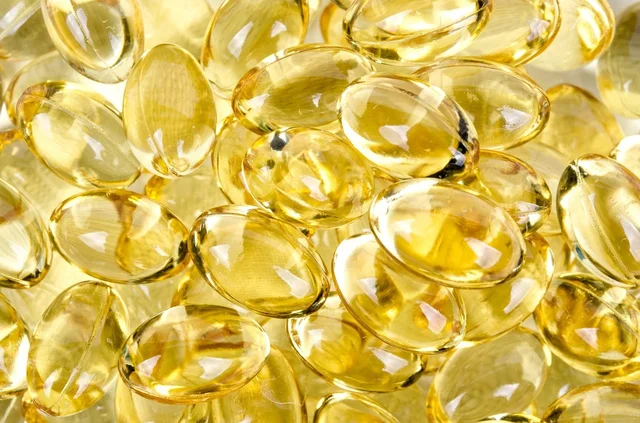Vitamin D: What are the benefits and how to start?
Vitamin D, a lipid-soluble vitamin, is essential for bone health and immunity. It also helps with
Calcium
absorption and cell growth. Vitamin D is found in salmon, mackerel and tuna as well as egg yolks and fortified dairy products. However, the majority of vitamin D we get from sunlight. Vitamin D helps the body to absorb calcium which in turn is important for healthy bones. Vitamin D deficiencies have been associated with serious conditions such as heart disease, cancer, and depression. Many experts have emphasized the potential benefits of vitamin D in recent years. Vitamin D has been shown to reduce cancer risk, prevent autoimmune disorders such as Multiple Sclerosis and improve cognitive and mood function. Vitamin D has been
proven
to lower the risk of age-related diseases such as osteoporosis.

Vitamin D: Benefits and Uses
Vitamin D is said to have many benefits, including:
-
Reduce the risk of some cancers, including colorectal cancer, breast cancer and prostate cancer.
-
Protection against diseases such as Multiple Sclerosis.
-
Improve mood and cognitive functions.
-
Reduce the risk of age-related osteoporosis.
-
Blood sugar regulation is a key factor in regulating blood glucose levels.
-
Improve muscle strength in elderly adults and reduce the chance of falling.
-
Improve fertility among women
The
research
looks promising but more
studies
will be needed to verify these alleged benefits.
Get Expert Opinions from Professionals and/or Experts
Experts agree that adequate vitamin D intake is important for good health. They recommend getting enough through sunlight and diet. Endocrinologist Dr. Michael Holick at Boston University Medical Center recommends adults consume at least 800 International Units of Vitamin D per day, while those older than 70 years old should get 600 IU. He notes, too, that depending on the individual's situation some may need to take in more. Dr. Holick stresses the importance of vitamin D production from sunlight. He recommends that you spend between 10 and 15 minutes each day outdoors without sunscreen to allow your skin to absorb ultraviolet B rays. These rays are essential for vitamin D production. The risk of developing skin cancer increases with excessive sun exposure. Wearing sunscreen is therefore important when you are outdoors.
Vitamin D: How to Start?
Vitamin D can be obtained by eating foods rich in vitamin D. They include salmon, mackerel, tuna and other fatty fish, egg yolks, fortified milk, mushrooms and so on. Some foods, such as cereals, orange juice and yogurt are also fortified. Your skin type, time of day and season will determine how much time you should spend in the sunlight. In general, 10 to 15 minute exposures of your arms, legs, and face without using sunscreen per day should suffice to produce enough vitamin D.
What are the side effects or drawbacks to Vitamin D?
The
research
shows that most people are safe to take vitamin D. Taking too much vitamin can cause health issues such as nausea, vomiting and confusion. It is therefore important that you consult your doctor prior to taking any supplements. Most adults should get 600 IU of vitamin D per day. Over 70s should target 800 IU a day. Pregnant and nursing women should strive for 1000 IU a day.
Conclusion
Vitamin D plays a vital role in the health of bones, immune system, cell growth and absorption. It may provide a number of health benefits including protecting against certain autoimmune disorders and reducing cancer risk. For most adults over the age of 70, experts recommend 600 IU daily. Diet and sunlight are the best ways to obtain enough vitamin D. It is best to consult your doctor prior to taking any vitamin D supplements..
